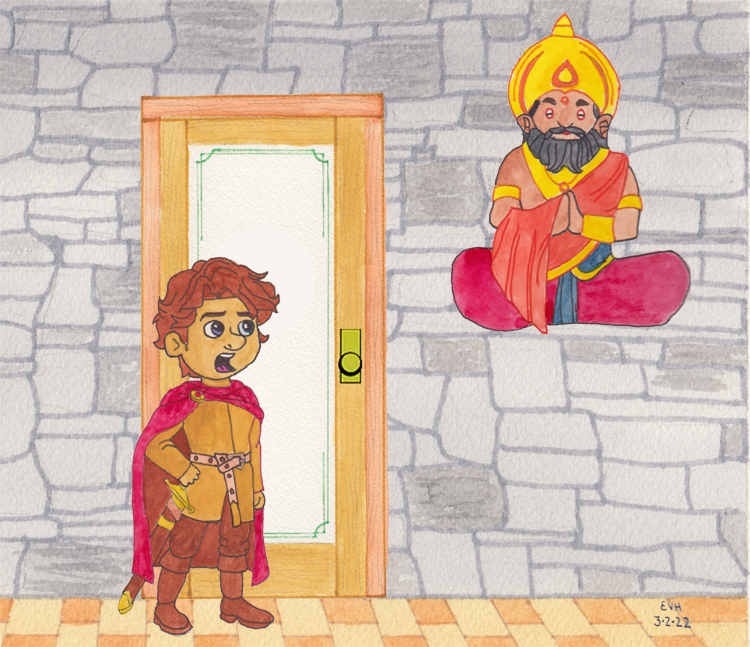
Jataka 303
Ekarāja Jātaka
The Universal Monarch
as told by Eric Van Horn
originally translated by H.T. Francis and R.A. Neil, Cambridge University
originally edited by Professor Edward Byles Cowell, Cambridge University
This is a story where virtue developed in previous lives is used to overcome adversity.
“O monarch that was.” The Master told this story while he was living at Jetavana. It is about a courtier of the King of Kosala. The circumstances that suggested the story have been already related in the Seyyaṃsa Birth (Jātaka 282). On this occasion the Master said, “You are not the only one who got good out of evil. Wise men of old also got good out of evil.” And he told them this story from the past.
Once upon a time a minister in attendance on the King of Benares misconducted himself in the royal harem. The King—after witnessing his offence with his own eyes—banished him from the kingdom. How he took service with the King of Kosala—named Dabbasena—is all told in the Mahāsīlava Birth (Jātaka 51).
But in the present story Dabbasena had the King of Benares seized while he was sitting on the dais in the midst of his councilors. He had him fastened by a cord on the lintel of the door, hanging him upside down. But the King cultivated feelings of lovingkindness towards the rebel prince, and by a process of complete absorption entered upon a state of meditative absorption. In this state he was able to burst his bonds, thereupon he sat cross-legged in the air.
The rebel prince was attacked with a burning pain in his body, and with a cry of “I burn, I burn” he rolled over and over on the ground. When he asked why this was happening, his courtiers replied, “It is because the King whom you suspend upside down from the lintel of the door is such an innocent and virtuous man.” Then said he, “Go quickly and release him.” His servants went and found the King sitting cross-legged in the air and went back and told Dabbasena. So he went to the King with all possible speed, and bowing before him asked his pardon, repeating the first stanza:
O monarch that once in your kingdom did dwell,
Enjoying such bliss as few mortals have seen,
How is it that lying midst tortures of hell
You still are so calm and your face does so gleam?
On hearing this the Bodhisatta repeated the rest of the stanzas:
My virtue in past was my gateway to heaven
From the ranks of ascetics no more to be barred,
But now that such glory to me has been given,
Oh why should the form of my features be marred?
The end is accomplished, my task is now done,
The prince once my foe is no longer estranged,
But now that the fame I so envied is won,
Oh why should the form of my features be changed?
When joy turns to sorrow, and weal becomes woe,
Patient souls even pleasure may wring from their pain,
But no such distinction of feeling they know,
When the calm of Nirvāna poor mortals attain.

Figure: “You still are so calm…”
On hearing this Dabbasena asked forgiveness of the Bodhisatta and said, “Rule over your own people and I will drive out the rebels from among you.” And after punishing that wicked councilor he went on his way. But the Bodhisatta handed over the kingdom to his ministers, and adopting the ascetic life of a holy man he became destined to be reborn in the Brahma world.
When the Master had brought his discourse to an end, he taught the Four Noble Truths at the conclusion of which the ill-tempered monk attained stream-entry. The Master then identified the birth: “At that time the ill-tempered monk was Culladaddara, and I was Mahādaddara.”
(In the next Jātaka Culladdara is the Bodhisatta’s younger brother and they are both Nāgas, or serpent deities. In this story Culladdara is the misbehaving King, and Mahāddara is his father.)
